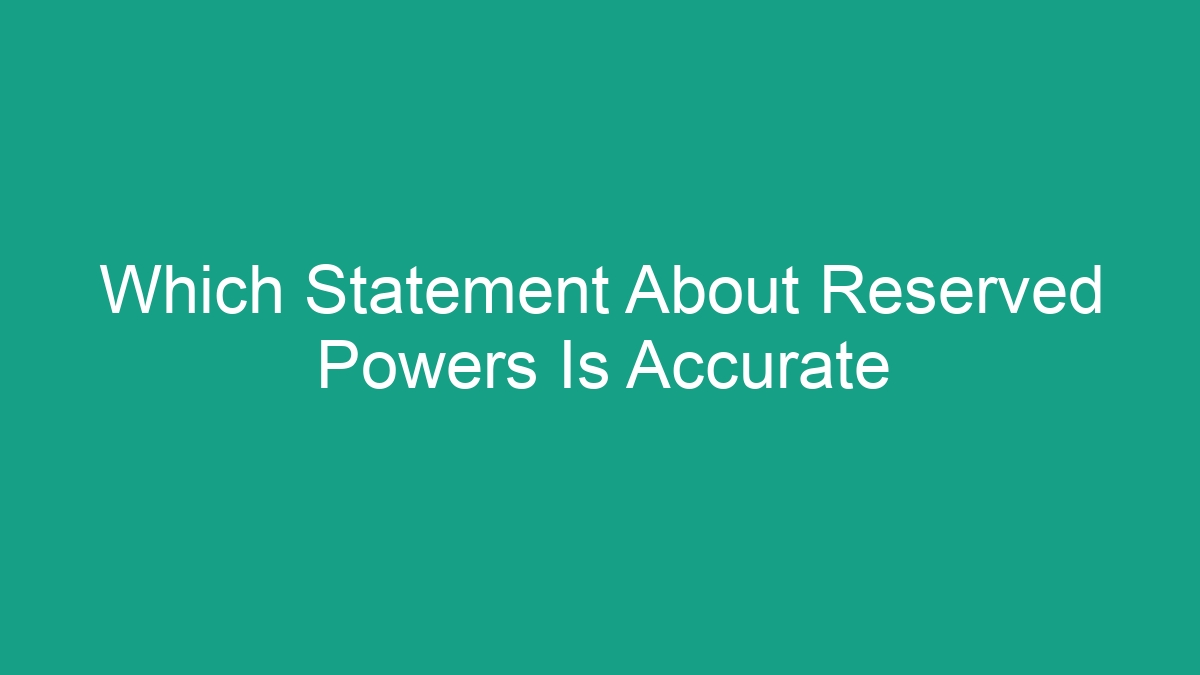
In the United States, the concept of reserved powers refers to the powers that are not specifically delegated to the federal government by the Constitution, nor prohibited by it to the states. These powers are reserved for the states and the people, and they play a critical role in the division of powers between the federal and state governments. Understanding the accurate statement about reserved powers is crucial in illuminating the nature of the relationship between the federal government and the states.
The Tenth Amendment and Reserved Powers
The Tenth Amendment of the United States Constitution explicitly addresses the concept of reserved powers. It states that “The powers not delegated to the United States by the Constitution, nor prohibited by it to the States, are reserved to the States respectively, or to the people.”
This amendment underscores the principle of federalism, which is the division of powers between the federal government and the state governments. It affirms that any power that is not explicitly granted to the federal government, or prohibited to the states, is reserved for the states or the people themselves. This ensures that the states have the authority to govern and regulate certain areas of public policy without interference from the federal government.
Examples of Reserved Powers
The concept of reserved powers encompasses a wide range of areas in which the states have authority to act. Some of these areas include:
- Education
- Public health and safety
- Transportation
- Criminal law and justice
- Corporate regulation and commerce
Within these areas, the states have the power to enact laws, establish regulations, and implement policies that directly affect their residents. This allows for a certain level of diversity in governance across the states, as they can respond to the specific needs and priorities of their local populations.
Implications of Reserved Powers
The existence of reserved powers has several important implications for the American political system. Some of these include:
- Decentralization of power: Reserved powers contribute to the decentralization of power, allowing for states to have a significant degree of autonomy in governing their own affairs.
- Experimentation and innovation: States can serve as laboratories for policy experimentation, as they have the authority to implement unique and innovative approaches to various issues.
- Checks and balances: The division of powers between the federal and state governments serves as a system of checks and balances, preventing any single entity from amassing excessive power.
Conclusion
In conclusion, the accurate statement about reserved powers is that they are the powers not specifically delegated to the federal government by the Constitution, nor prohibited by it to the states. These powers are reserved for the states or the people, as articulated in the Tenth Amendment. Understanding the concept of reserved powers is essential for grasping the dynamics of federalism and the distribution of authority within the American political system.
FAQs
What is the significance of reserved powers?
The significance of reserved powers lies in the decentralization of authority, the promotion of experimentation and innovation in policy-making, and the maintenance of checks and balances within the American political system.
How do reserved powers contribute to federalism?
Reserved powers contribute to federalism by delineating the areas of authority between the federal government and the state governments, ensuring that the states have autonomy in certain policy domains.



